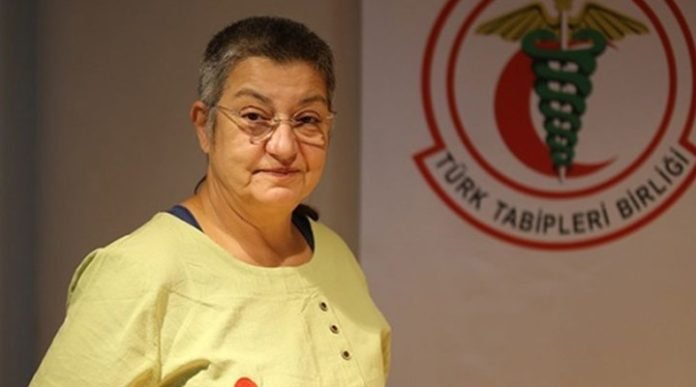Şebnem Korur Fincancı, a human rights advocate and forensic medical expert, is facing charges for “publicly insulting the Turkish state,” the Media and Law Studies Association (MLSA) reported.
The charges came after Fincancı suggested on a YouTube channel that Orhan İnandi, a detainee who had been abducted by Turkey’s National Intelligence Organization (MİT) from Kyrgyzstan and forcibly brought to Turkey showed signs of being tortured.
İnandı, the founder and director of the Sapat school network operating in Kyrgyzstan, went missing at the end of May 2021 in Bishkek and was found in detention at the Ankara Police Department in early July. He was abducted due to his links to the Gülen movement by MİT, which has been involved in the illegal rendition of people to Turkey from countries around the world.
Photos of İnandı in police custody in handcuffs with Turkish flags prompted allegations of torture at the time due to İnandı’s visible weight loss and swollen right hand.
The Gülen movement, a faith-based group inspired by Muslim cleric Fethullah Gülen, is labelled as a terrorist organization by the Turkish government and accused of masterminding a failed coup in Turkey in July 2016. Both Gülen and his followers strongly deny any involvement in the abortive putsch or any terrorist activity.
Turkish President Recep Tayyip Erdoğan had acknowledged in a statement in July 2021 that İnandı was actually abducted by MİT, lauding the Turkish spies’ efforts in the rendition.
According to the Istanbul Chief Public Prosecutor’s Office Fincancı’s remarks in a YouTube interview, where Fincancı suggested that İnandı might have been subjected to torture, including “suspension torture,” based on photos circulated in the media were intended to create the perception of torture, thereby insulting the state.
The first hearing in Fincancı’s trial took place Monday at the 14th Criminal Court of First Instance in Istanbul. The court ruled that she must be escorted to the next hearing in January after she failed to appear.
Observers from Amnesty International, the German Consulate General and multiple rights organizations attended the session.
Article 301 of the Turkish Penal Code, which criminalizes “insulting the Turkish nation, state institutions, or the government,” requires permission from the Ministry of Justice to prosecute. In Fincancı’s case, the ministry granted this approval on January 15, 2024, allowing the trial to proceed.
The article, which has faced repeated criticism from the European Court of Human Rights and rights advocates for being overly broad and curbing free expression, was amended in 2008 to include the requirement for ministerial approval to bring charges.
Critics argue that the law continues to suppress dissent, particularly in cases involving public figures like Fincancı, who are known for advocating against torture and defending human rights.















